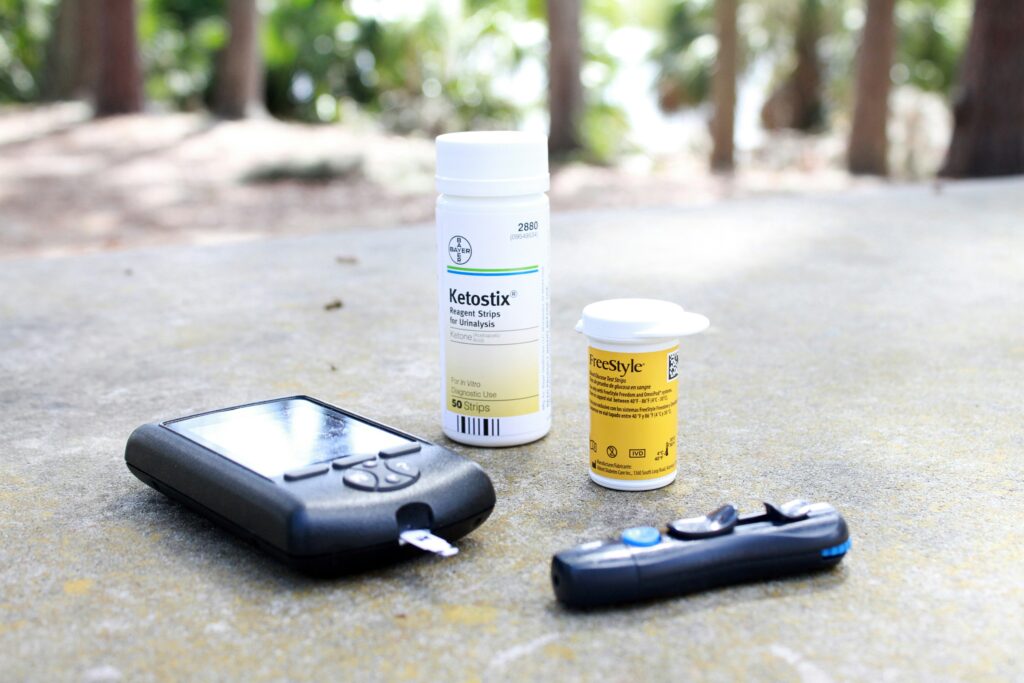World Diabetes Day: HealthTech innovations transforming diabetes care
Every November 14, the world observes World Diabetes Day to increase awareness about diabetes and support those affected by it. The prevalence of diabetes has been steadily increasing worldwide, with over 400 million people diagnosed, and it’s projected to rise. Health technology, or HealthTech, has emerged as a beacon of hope, offering solutions to enhance the lives of diabetes patients and mitigate the challenges they face. As we commemorate World Diabetes Day, we must explore how technological advancements transform diabetes care, prevention, and management.
The global burden of diabetes
Diabetes remains one of the leading health challenges worldwide, with both Type 1 and Type 2 diabetes affecting millions. Factors like lifestyle changes, genetics, and increased life expectancy contribute to the growing number of cases. The impact is particularly significant in low- and middle-income countries where healthcare infrastructure often lacks adequate resources to tackle the chronic condition. HealthTech companies and innovators are keenly aware of these challenges, which has led to a rise in diabetes-centered technologies designed to enhance the quality of life and care.
HealthTech transforming diabetes care
The advancement of HealthTech in diabetes care is happening on multiple fronts, ranging from early diagnosis and prevention to continuous glucose monitoring and personalised treatment. Below are some of the most promising areas where HealthTech is making a difference:
Continuous Glucose Monitoring (CGM) Systems
Continuous Glucose Monitors (CGMs) have revolutionised diabetes care by allowing patients to track their glucose levels in real-time. Devices like the Dexcom G6 and Abbott’s FreeStyle Libre are popular CGMs that provide a wealth of data to patients and doctors. By displaying real-time blood sugar levels on smartphones or wearable devices, patients can make informed decisions about food intake, insulin administration, and physical activity.
These tools are especially beneficial for Type 1 diabetes patients who require close monitoring to prevent extreme highs and lows. Integrating CGMs with mobile applications and cloud platforms also enables caregivers and healthcare providers to monitor patients remotely, offering peace of mind and timely interventions when necessary.
Artificial Intelligence for personalised treatment
Artificial Intelligence (AI) is pivotal in personalising diabetes treatment plans. Machine learning algorithms can analyse a patient’s historical data to forecast glucose trends, suggest lifestyle adjustments, and even predict the required insulin dose. Companies like Glooko and Virta Health leverage AI to create personalised programs tailored to individual patient needs, minimising risks and improving patient outcomes.
These AI-driven models consider various data inputs—diet, exercise, sleep, and previous glucose readings—to fine-tune the treatment, reducing the guesswork that diabetes patients often face.

Smart insulin pens and pumps
Smart insulin pens and pumps represent another groundbreaking innovation in diabetes care. These devices are designed to accurately calculate and administer insulin doses based on real-time glucose data. Brands such as Medtronic, Tandem, and Omnipod offer smart insulin pumps that communicate with CGMs, creating a semi-automated system that adjusts insulin levels as needed. Some models even suspend insulin delivery during hypoglycemia events, significantly improving patient safety.
The combination of CGMs and smart insulin pens makes a closed-loop system, sometimes called an “artificial pancreas,” that can autonomously manage a person’s blood sugar levels.
Digital health platforms and telemedicine
Digital health platforms and telemedicine have made it easier for diabetes patients to access care. Platforms like MySugr, Lark Health, and Blue Loop offer app-based solutions where patients can log their glucose levels, food intake, physical activity, and medications. These platforms use data analytics to provide feedback, education, and reminders, helping patients stay on top of their condition.
With telemedicine, patients can now consult with healthcare providers remotely, making diabetes care more accessible to those in rural or underserved areas. Telemedicine also enables a more frequent check-in system, which is especially helpful in managing chronic conditions like diabetes that benefit from regular monitoring.
Predictive analytics for early detection and prevention
Early detection of Type 2 diabetes is crucial in preventing complications, and predictive analytics is playing an invaluable role. By analysing genetic, lifestyle, and biometric data, predictive models can identify people at high risk of developing diabetes. This allows healthcare providers to intervene early with lifestyle recommendations, medication, or regular screening to prevent or delay the onset of diabetes.
Startups like Cardiogram and Sugar IQ use predictive analytics combined with data from wearable devices to monitor potential indicators of diabetes, such as heart rate and activity levels. Such proactive approaches focus on prevention and help reduce the global diabetes burden.
World Diabetes Day: highlighting HealthTech’s role in diabetes care
World Diabetes Day 2024, with its theme “Access to Diabetes Care: If Not Now, When?”, reminds us of the urgent need to bridge gaps in diabetes management. HealthTech advancements promise to democratise access to better diabetes care, but there’s still work to make these technologies accessible to everyone. While HealthTech brings hope, affordability and accessibility are two barriers that stakeholders, governments, and policymakers must address.
Investing in diabetes-focused HealthTech solutions can be transformative. Collaborations between tech companies, healthcare providers, and governments can make these life-changing innovations more available globally. As we reflect on the progress made in diabetes care on this World Diabetes Day, let us continue to advocate for more inclusive, affordable, and effective solutions to make a difference for everyone living with diabetes.
Looking ahead: the future of HealthTech in diabetes care
As HealthTech continues to advance, the outlook for diabetes patients is increasingly hopeful. Innovations in wearable technology, AI, and digital health solutions promise a future where managing diabetes will be less burdensome and more efficient. Emerging technologies such as gene editing, stem cell therapy, and precision medicine hold exciting possibilities for potentially curing Type 1 diabetes in the future.
On this World Diabetes Day, it’s clear that HealthTech will play an essential role in overcoming one of the most pressing health challenges of our time. With continued investment, collaboration, and advocacy, we can look forward to a future where managing—and ultimately eradicating—diabetes is within reach.



